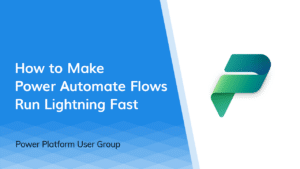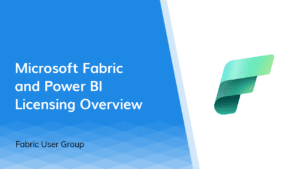Modern businesses are functioning in a constant state of flux in terms of technology and business complexity. When trying to manage the needs of the organization, teams tap ERP software to secure future success. It follows that most businesses at one point or other mull over the advantages and disadvantages of off-the-shelf software vs custom software.
With ERP failure rates said to be as high as 75%, is it a question of out-of-the-box or custom software? Or, are more systemic issues at work? To find out, we sat down with business strategy expert Peter Adams from Aldrich Technology.
Included in the discussion are some of the common pitfalls organizations make when determining whether to adopt off-the-shelf software or custom software, implementation issues, and the importance of rooting all decisions from a well-considered assessment framework.
What is custom software?
Custom software is when you have to write code that is not part of the manufacturer’s codebase and you change the way a system works.
Who needs custom software?
Custom software has two places in business where it’s really valuable. One is when it glues systems together—so, the integrations between systems. For example, let’s say your CRM and ERP system are involved.
At some point, you have to decide: Does data basically go from being in one system of record to being in the other system of record? The integration between those systems is a natural place for custom software. The cost of maintenance for this custom integration is likely to be less than the value derived by having the system integrated so that you have coherent data across the systems.
The other place for custom software is when there is something in your operations that is truly unique and adds value, and that process is not encapsulated or within the capabilities of your existing systems. But, make sure your process is important and really does add value.
What is off-the-shelf software?
Off-the-shelf software or out-of-the-box software is a set of functions and features that exist within the constructs of a particular application that required no custom coding or development effort.
Who needs off-the-shelf software?
For 90% of any particular business, you can use off-the-shelf software.
For example, there are 2,400 ERP systems out there. You need to find a package that fits the category of business or fits the budget that you have, which has to include implementation and maintenance. Once you have that, then the real critical factor for success is the quality of the implementation.
That’s one of the big blind spots in the industry. They do not pay nearly enough attention to the implementation.
What are the buy vs. build software pros and cons?
In terms of the buy vs build software pros and cons, you first have to think about the problem you’re trying to solve. Understand the questions you’re asking about your business and understand the kinds of answers you need for those questions.
- Where does that data live?
- What processes and systems give rise to that data?
- What infrastructure supports it?
- And will this question be valid next year and the year after?
If you start to look at things that way, you get a much more holistic understanding of the problem you’re trying to solve and how you need to solve it.
We do a lot of ERP work and one of the challenges I see is companies approach it without understanding what problem they’re trying to solve. They know some of the pain points with the current situation and so they want to solve that.
But that’s looking backward. They need to look forward and ask:
- What kind of company am I becoming?
- What are my processes going to be?
- What do I need to solve my future problems?
What are the main pillars in your assessment framework and how are they prioritized differently from client to client?
We always focus on the business outcome. Then we look at the processes and the systems and the data underneath all that.
One of the constructs is what I call “master data.” Master data ideally means that you have all your data in a way that’s accessible and correlated so that you can look at it across your entire enterprise.
Many people think that means you have to have one system. Really you need to make sure you have a common database environment and that you have encoded the fields within the various applications so they are coherent. Then you can use a common reporting environment to get at the data and the analytics across that whole spectrum.
This is some of the big picture thinking that we try to bring to the table. We help people look at their business from a business outcomes perspective and a more data-centric approach, while still paying attention to the applications.
Here is one of those examples where custom software comes into play. How many times do customer names, addresses, and phone numbers exist in your environment? On average, we find it exists seven times, so seven different databases for our clients.
Custom software can be built as an overlay to make sure you maintain that data coherence. So when you update whatever the system of record is, that automatically updates the other systems for those kinds of common data elements. That’s a great place for custom software.
Why are assessment frameworks helpful?
Any framework is better than no framework. If you have no plan and no structure, the likelihood that you’re going to miss important things is too great. The value of a framework is really the rigor and discipline that goes into making sure you’ve asked the questions, looked at the problem, and analyzed it in a way that makes sense.
Do organizations usually have assessment frameworks in place?
The number one thing I run into is: “We bought this ERP system because somebody I knew at this other company bought it and liked it. Even though they’re a completely different business than we are—different size and in a different industry.” That is probably the worst way to select a system.
The second thing is “We took a look around and this was the one that was in our price range.” I would rather spend money and get a much greater return than to just spend a little bit of money and get no return. If it’s the latter, why bother?
Because if you’re going to get no return you might as well just stick with what you’re already doing. In fact, about 30% of the time we help clients, we find that they don’t need new systems. We just need to tweak and re-implement the systems they’ve already got.
What should be included in a software assessment framework?
Above all, the business outcome. The big picture gets lost too many times. Ask the following:
- What problem are we trying to solve?
- What questions am I asking about my business?
- What kind of answers do I need?
- How do I need the data presented?
What would you say to someone stuck in the “make or buy” software decision?
Buy off-the-shelf software whenever possible. I think they get a much bigger bang for the buck with maintenance and all the ongoing costs. They’d have to prove to me that they actually need the custom software.
_________________
64% of respondents said their ERP projects go over budget. Make sure your organization doesn’t endure these all-too-common challenges and failures by developing an assessment framework definition that aligns with your business goals—and by choosing a software solution for the right reasons prior to implementation.
Need further guidance? The CSG Pro team is well-versed with custom software development and we’d love to share our insights…reach out!











